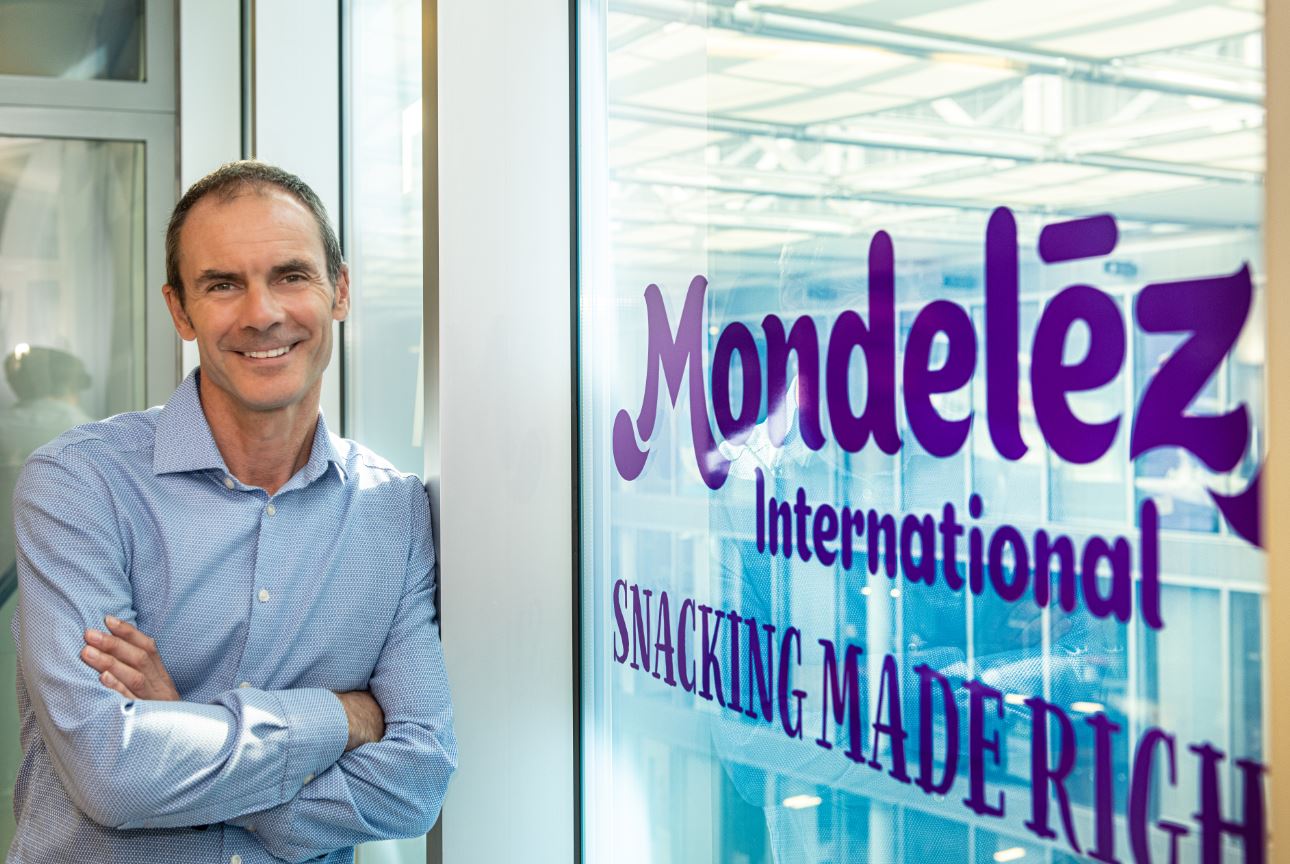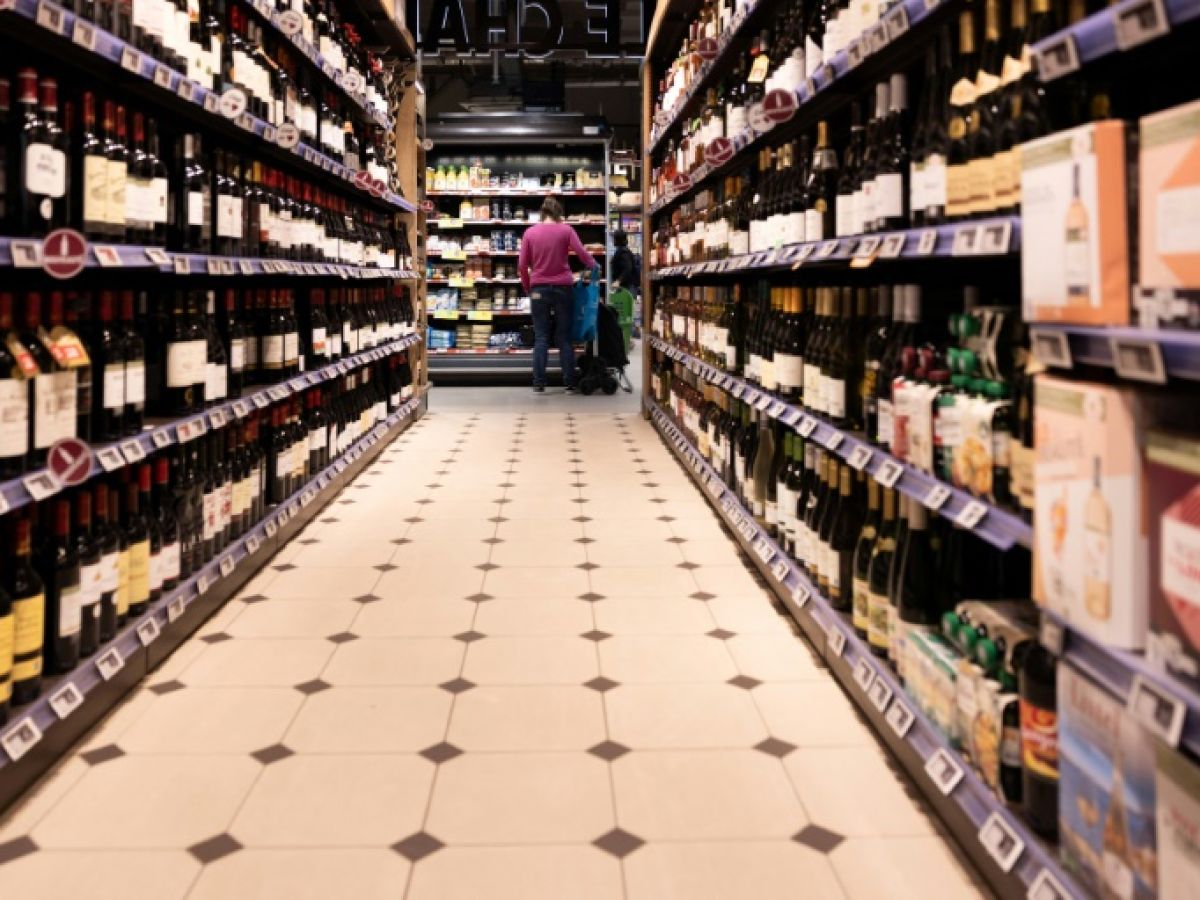
Gray doesn't seem to have gotten the message if that's the case.
Gray, despite his immense power and ability to manipulate large sums of money that would put an unassuming snack on the world stage where it could generate millions of dollars in sales, is modest and personable.
His accent is not that of Glasgow but that of St Andrews, in the east of Scotland. He laughs when someone suggests that it is possible. He gently intervenes to calm his embarrassed interlocutor: "I have lived far from Scotland and have worked at our Zurich headquarters for eight years."
It’s no surprise that he has a strong reputation in the snacks industry. Gray graduated from the University of Edinburgh in 1991 with a degree in business studies and accounting. His career, apart from a five-year stint in whisky production at United Distillers, now Diageo, has been stable. You can read more here.About snacks.
After holding various positions within the Kraft Foods Group, including Director of Sales, Category Planning Controller and Sales Integration Manager when Mondelez International acquired the Kraft Foods division in 2012, he assumed the role of Sales Integration Manager. Since then, he has focused primarily on M&A and growth.
In my current role, fundraising and the investment world is not the most enjoyable. Our data center partners and portfolio companies face the same challenge, but we are less challenged because our business does not operate like a fund.
It may seem easy to invest from an international company's bank account, but it's not as simple as handing over a large sum of money just because a company looks promising. He says they have to carefully evaluate each investment to make sure it will work.
Partnerships that work:
Richie Gray will speak at the Future Food Tech conference in London. Where to find a full schedule and ticket information.
Gray is one of the experts on a panel that will focus on strengthening and creating partnerships in the food industry. He says:
Even when I started in sales, I was passionate about the power of collaboration. I have always been a big believer in partnering with distributors and customers to achieve a win-win outcome. This is more important now than ever. Together you are more powerful than apart. The importance of collaboration cannot be overstated. There is always something to be gained in this industry. If you look and find the right thing that meets the needs of your investors and the people or customers in the market, then that will be key. It is sometimes hard to spot, but you have to look for it and be willing to explore and be patient to discover the right one.
What will Mondelez do next?
Later, we will talk in more detail about the snack companies Mondelez International is looking to invest in. Gray is operating in a market characterized by massive inflation over the past two years, supply chain disruptions and rapidly changing consumer demand.
The main cause of stress in the industry is due to fluctuations in raw material prices, which are mostly on the rise. Bosses confident in economic stabilization", especially for cocoa. We are closely monitoring the impact of inflation on our consumption. "The snacking industry is relatively elastic and inflation is robust. But consumers have a limit."
SnackFutures Ventures was created to help accelerate the growth of a snack category. [innovation] “A future-proof company.”
Gray says one of his most rewarding roles is seeing the different businesses, ideas and entrepreneurs.
Snackfutures is a company that has made a number of investments, including €1.87 billion in croissant and baked snack maker Chipita, as well as €2.6 billion in Clif Bar & Company and €1.1 billion in confectioner Ricolino.
It's in the name of the game. It's an evaluation game to see if something is interesting or not. We can sometimes scale for a relatively small investment and see what happens."
Gray's team is not looking for a startup, but rather a startup that has a "game-changing" idea.
The types of startups and food technology companies that Mondelez Internationals Snackfutures is looking for are “more established and profitable” and already have positive cash flow.
Mondelez is often the one helping food majors become small businesses by providing them with the knowledge and assets, through its team, that they need to take that final step toward significant scale. It’s a pretty broad spectrum. We can incubate some ideas, but we always work closely with our partners and make decisions [on next steps]. We meet with management and the founder to better understand their needs. “We can send a team of supply chain specialists to help with logistics,” he says.
Gray is still in his early years as a manager. The team is growing and Gray has partnered with departments across the business to understand emerging or new opportunities. Subsequent investments have also been made in previously backed companies, which “sends a positive message to companies that we are not done investing in them.” He says we will redouble our efforts as long as the business is moving in the right direction.
Gray says he and his team are interested in a cocoa-based cell company. “We won’t name them by name, and they’re a long way from being commercialized, but it’s very interesting,” Gray says.
What can businesses do to attract support from Snackfutures?
Snackfutures’ market gaps are closely guarded secrets, but the CEO reveals: “Better For You has been a big trend for many years, and it’s still very popular.” Consumers still want to indulge, but in a healthier way. [as a trend] He’s also interested in the fusion of trends, including wellness, personalization, gifting and premiumization. It becomes even more intriguing for Gray when technology joins this convergence and allows consumer data to help deliver better snacking options. [or functional] Richie Gray wants to invest in the snacking sector, but he has very specific criteria.
He says the second really important trend in today’s world is sustainability. Companies that enable things like carbon neutrality or regenerative agriculture, as well as protecting the supply of ingredients like cocoa and wheat in the long term, have an advantage. Sustainability and well-being cannot be compromised by the taste of snacks.

Gray and other executives recently spoke about Mondelez International's appetite for brands in the cake and pastry market, a huge category in which the company believes it can compete.
It’s just after chocolate and biscuits. Chipita was one of our biggest acquisitions when we decided to rethink biscuits as bakery products. It was the first step we took into the European pastry market.
The most powerful man in the snacking industry is about to shake up the young company's founder's world.
Richie Gray will be speaking on the panel ‘Industry Collaboration: Strengthening Partnerships with Retailers and Foodservice Companies’ at the Future Food Tech event in London from 2-3 October.
Quick Questions: [in this category for Mondelēz International]What is the biggest challenge for European food and beverage producers?
There is inflation. In some areas it is getting better and in others it is getting worse. It is not inflation, it is volatility. The external market can be volatile.
How do you use technology to help your business succeed?
We use technology in many areas. In many different areas, we use technology. We look for ways to collaborate with our IT leaders. We focus on technology to improve crop yields, better trace ingredients, better detect allergens, and help with food safety. Technology that can help reduce carbon emissions and improve manufacturing efficiency, as well as technology that makes shopping easier and faster for customers.
AI is another option. It’s a new technology that we’re all learning to use. We see a variety of opportunities to leverage and apply consumer data. There will be a lot of opportunities, but also a lot of risks. Technology affects every aspect of our business. We can’t ignore anything.
What are the mistakes you see in F&B startups?
It’s not the same for everyone. In today’s fundraising climate, the expectations for value are still too high. These startups, which are food companies and not tech companies, want to be seen as tech companies.
Investors see money being lost because founders are obsessed with controlling and cutting costs. By doing this, companies can much more easily attract investors and grow.
A good business often depends on the ability of its founders to execute on a brilliant idea. Founders ignore their brand and think that it can be fixed later if problems arise. I would ask founders to think about what their brand stands for from the beginning. As soon as the brand is launched, you have a great opportunity to create assets. This could be a logo or a packaging design. Make sure the assets are consistent.

